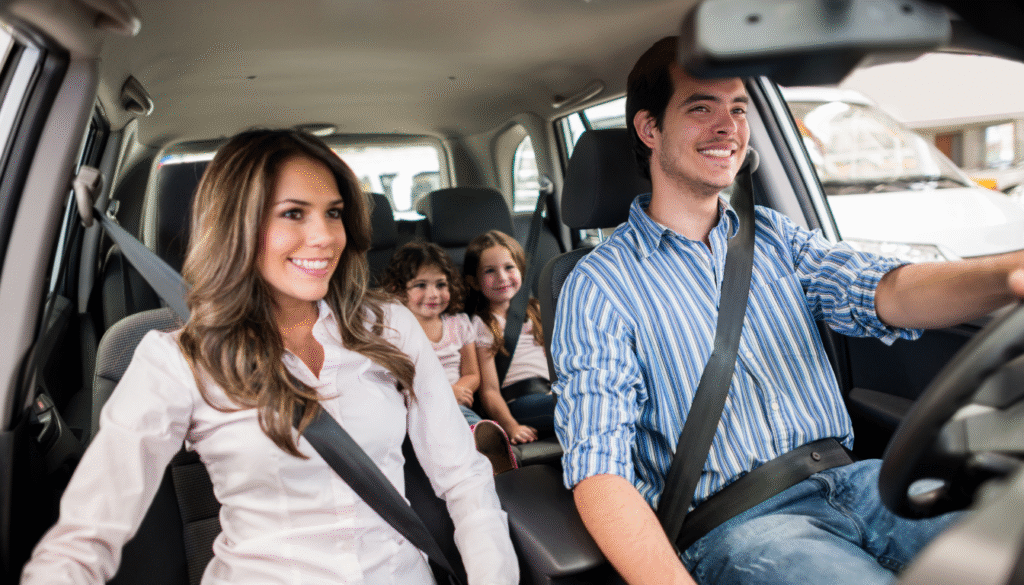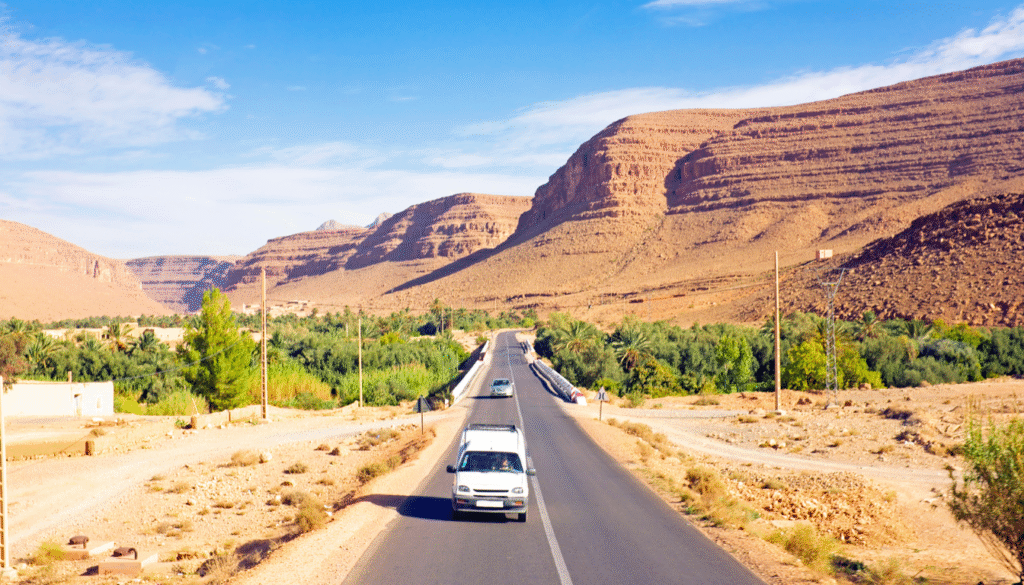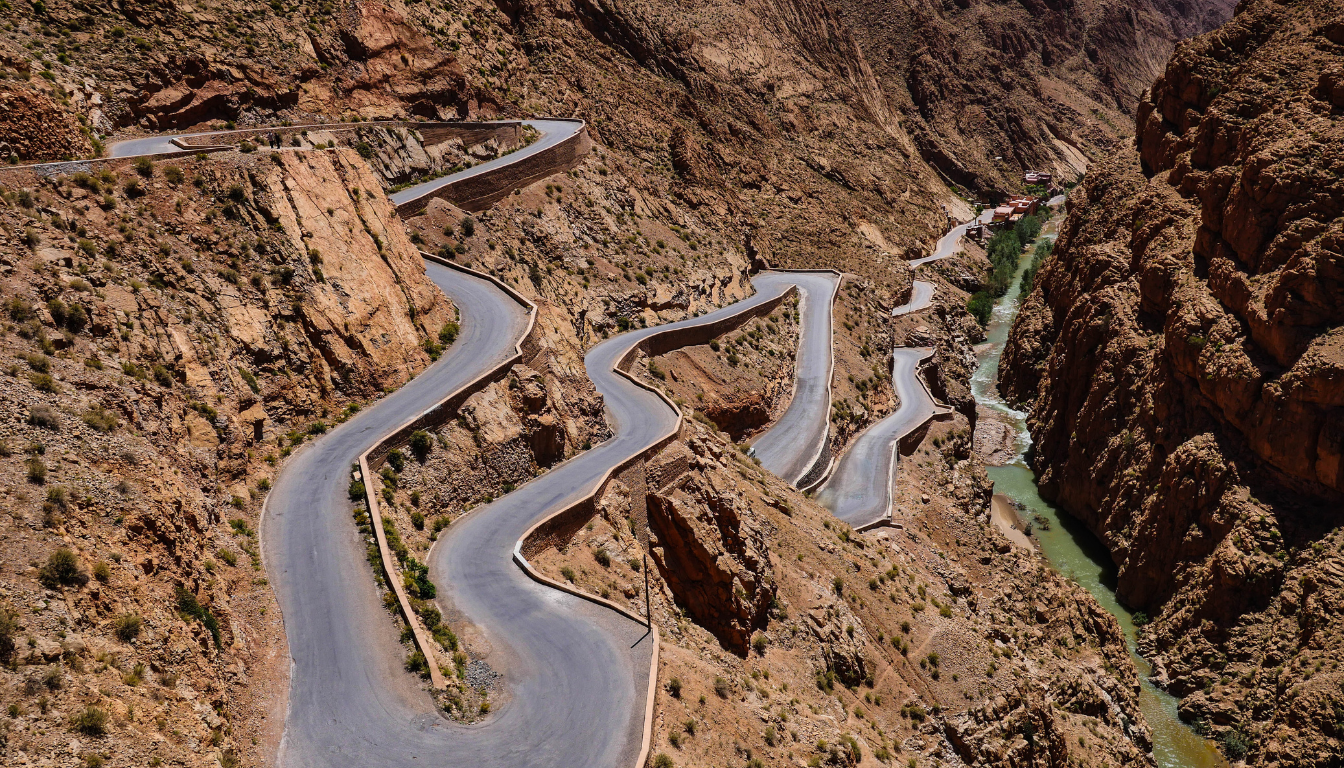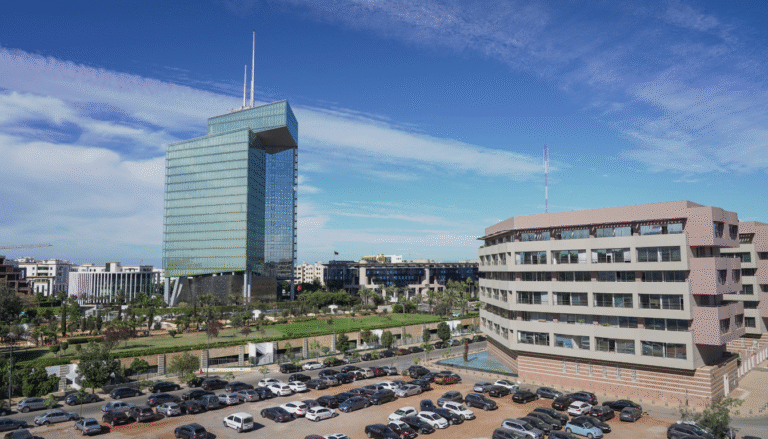Driving in Morocco: What You Need to Know
Morocco is a dream destination for road trippers, with its varied landscapes and tough road conditions. Knowing the local road rules and driving tips is key for a safe and fun trip.
Morocco’s roads mix modern highways with rural paths, giving you a special driving adventure. To enjoy your trip fully, you must understand the local driving culture and road conditions. This guide will cover the essential documents, safety tips, and road rules for a smooth driving experience in Morocco.
What to Expect When Driving in Morocco
Driving in Morocco is exciting, but you need to know what to expect. You’ll find modern highways and tough city traffic. It’s important to be ready for different road conditions.
Overview of Road Conditions
Morocco’s roads are well-built, with toll highways linking big cities. But, city driving in places like Marrakech and Casablanca is tough. The traffic is heavy, and drivers can be aggressive. Rural roads are also bumpy, so your car needs good suspension.
Benefits and Challenges of Self-Driving
Driving yourself lets you see Morocco at your own speed. You can find secret spots and enjoy beautiful views. But, city traffic and local driving habits can be tough. Knowing these challenges helps you prepare and enjoy your trip more.
Required Documents for Driving in Morocco
Before you start driving in Morocco, knowing the needed documents is key. You must have the right papers for a smooth drive. Knowing what you need will make your trip easier.
International Driving Permit Requirements
Most people can drive in Morocco with a valid foreign license. But, it’s wise to check your country’s specific rules. An International Driving Permit (IDP) is not required but is suggested. It translates your license into many languages, helping authorities verify it.
Insurance Documentation
Valid insurance is vital when driving in Morocco. Your car insurance must cover you in Morocco. Make sure your policy includes international coverage. Some car rental companies also offer insurance, so check these options when renting.
Vehicle Registration and Other Paperwork
If you’re driving your own car, ensure it’s registered and you have all the paperwork. This includes the vehicle registration certificate and proof of ownership. If you’re renting, the rental company will provide the necessary documents.
| Document | Description | Required for |
|---|---|---|
| Valid Foreign Driving License | A valid driving license from your home country | Driving in Morocco |
| International Driving Permit (IDP) | A translation of your driving license into multiple languages | Recommended for all drivers |
| Vehicle Insurance | Insurance that covers your vehicle in Morocco | Driving in Morocco |
| Vehicle Registration Certificate | Proof of vehicle registration | Driving your own vehicle |
Car Rental in Morocco: What You Need to Know
Renting a car in Morocco is a great way to see the country’s varied landscapes and cultures. Many national and international car rental companies are available. This gives you lots of choices.
Popular Rental Companies and Costs
Well-known car rental companies like Europcar, Hertz, and Avis operate in Morocco. Prices depend on the car type and how long you rent it. You might pay between $40 to $100 per day for a standard car.
It’s smart to compare prices and services from different companies. This way, you can find the best deal for your needs.
- Europcar: Offers a wide range of vehicles, from economy cars to luxury vehicles.
- Hertz: Provides various car types, including 4×4 vehicles suitable for rugged terrains.
- Avis: Known for its customer service and variety of car models.
Vehicle Types Best Suited for Moroccan Roads
Morocco’s roads are different, from smooth highways to rough mountain paths. For city driving and short trips, a 2WD car is usually enough. But, for the Atlas Mountains or desert, a 4×4 vehicle is better for traction and control.
Rental Insurance and Damage Policies
It’s important to know about rental insurance and damage policies to avoid extra costs. Most companies offer basic insurance. But, you might want to buy extra coverage for full protection.
Always check the car before renting and take photos of any damage. This helps avoid any issues later.
Essential Road Rules in Morocco
To drive safely in Morocco, learn the key road rules. Knowing these rules helps you avoid fines and ensures a fun drive.
Speed Limits and Enforcement
In Morocco, speed limits change based on the road type. In cities, it’s 60 km/h. On secondary roads, it’s 100 km/h. Highways have a limit of 120 km/h. Speed cameras and police are common, so follow these limits to avoid fines.
Right of Way and Traffic Signals
Knowing who has the right of way is key in Morocco. Vehicles already in the roundabout or coming from the right have priority. Traffic lights are used in big cities, but power outages or police directions can happen. Always be ready to yield when needed.
Parking Regulations
Parking in Morocco, like in Marrakech and Casablanca, can be tough. Look for official parking spots and follow signs for parking rules. Some places need you to pay, so have local money ready.
| Road Type | Speed Limit (km/h) |
|---|---|
| Urban Areas | 60 |
| Secondary Roads | 100 |
| Highways | 120 |
By following Morocco’s road rules, you’ll have a safe and fun drive in this lively country.
Understanding Traffic Signs in Morocco
Driving in Morocco requires knowing traffic signs for a safe trip. Traffic signs here are like those in Europe but with some unique features. Knowing these helps you drive confidently.
Common Road Signs and Their Meanings
Moroccan traffic signs tell you about road conditions and rules. They warn of pedestrians, animals, or roadwork ahead. They also show speed limits, right-of-way, or parking rules.
Guide signs give directions, point to destinations, or services. For example, a sign with a pedestrian picture means a crossing area. A sign with a camel warns of animals on the road.
Differences from American Road Signs
Many Moroccan signs are similar to those in the U.S., but there are differences. Warning signs in Morocco often use pictures more than text. They might also be in Arabic or French, not just English.
Knowing these differences helps you understand and react to signs quickly. This makes your drive in Morocco safer and more enjoyable.
Safety Tips for Driving in Morocco
Driving safely in Morocco is more than just following the rules. It’s about being proactive and ready for other drivers’ actions. You need the right safety tips and driving techniques to navigate Morocco’s roads well.
Defensive Driving Techniques
Defensive driving is key in Morocco’s busy cities. Always be aware of your surroundings and the actions of others. Keep a safe distance from the car in front of you.
Key defensive driving techniques include:
- Staying alert and focused on the road
- Anticipating the actions of pedestrians, cyclists, and other vehicles
- Maintaining a safe following distance
- Being prepared to react to unexpected situations
Dealing with Aggressive Drivers
Aggressive driving is common in Morocco. If you meet an aggressive driver, don’t engage with them. Give them plenty of space. Stay calm and pull over if needed to let them pass.
Night Driving Precautions
Driving at night in Morocco needs extra care. Roads are often poorly lit, and visibility is low. Slow down, use high beams when you can, and watch out for pedestrians and animals.
Additional night driving tips:
- Ensure your vehicle’s lights are in good condition
- Avoid driving when tired
- Be aware of road conditions that may be more hazardous at night
Emergency Situations and What to Do
In emergencies, like a breakdown or accident, stay calm and follow the right steps. If you’re in an accident, move to a safe spot, exchange info, and report it to the authorities.

Being prepared and knowing how to handle road situations can greatly improve your safety in Morocco.
Navigating Major Cities in Morocco
Driving in Morocco’s cities is an adventure. You’ll need patience and local tips. Marrakech and Casablanca have busy streets and tight spots. But Fez and Rabat are easier to drive around.
Driving in Marrakech
Marrakech is full of wide roads and tight alleys. Be ready for lots of people and cars. Watch out for motorbikes and bicycles as they zip through traffic. Finding a parking spot can be tough, so know where to go.
Driving in Casablanca
Casablanca is Morocco’s biggest city and a big business center. The traffic moves fast, so stay alert. Be careful of drivers who are in a hurry and take your time at roundabouts and intersections. Look for safe parking spots before you go.
Driving in Fez and Rabat
Fez and Rabat are more relaxed to drive in than Marrakech and Casablanca. Fez’s old medina is better seen on foot because of its narrow paths. Rabat, being the capital, has better traffic rules but you should know the local driving ways.
| City | Driving Challenges | Parking Tips |
|---|---|---|
| Marrakech | Crowded streets, pedestrians | Use designated parking areas |
| Casablanca | Fast-paced traffic, aggressive drivers | Research secure parking facilities |
| Fez | Narrow streets in the old medina | Explore the medina on foot |
| Rabat | Organized traffic patterns | Follow local driving customs |
Rural and Scenic Routes in Morocco
Exploring Morocco reveals stunning driving paths. You’ll see the Atlas Mountains, coastal roads, and vast deserts. Each offers a unique driving adventure.

Mountain Roads in the Atlas Mountains
Driving in the Atlas Mountains is exciting. The roads twist through rugged landscapes, showing off valleys and peaks. Be ready for tough roads, including narrow paths and rockslides.
Make sure your car is in top shape. For the toughest paths, a 4×4 is best.
Coastal Driving Routes
Morocco’s coastal roads are a calm drive with ocean views. The roads are well-kept, making for a smooth trip. You’ll see quaint coastal towns and villages, great for a break.
Watch out for people walking and parking by the beach.
Desert Driving Considerations
Driving in the desert is thrilling but needs planning. Choose a 4×4 and know how to use GPS and maps. Extreme temperatures and sandstorms are possible.
Always carry extra fuel, water, and emergency supplies.
| Route | Terrain | Vehicle Recommendation |
|---|---|---|
| Atlas Mountains | Mountainous, rugged | 4×4 |
| Coastal Roads | Paved, smooth | 2WD |
| Desert Routes | Sandy, uneven | 4×4 |
Fuel, Rest Stops, and Roadside Assistance
Planning a road trip in Morocco? Knowing where to find fuel, rest stops, and get help is key. Morocco’s infrastructure supports travelers well, making it easy to explore the country.
Gas Station Availability and Payment Methods
Fuel is easy to find in Morocco, with many gas stations along highways and in cities. Most accept credit cards, making it simple for visitors to refuel. Look for stations like Total and Afriquia, which have modern facilities.
Finding Reliable Rest Areas
Rest stops are found along highways, with basic amenities like restrooms and snack vendors. While safe, be careful with your belongings and avoid isolated areas.
What to Do in Case of Breakdown
If your car breaks down, Morocco has a good roadside assistance network. Many car rental companies offer help, and local mechanics are available too. Keep emergency contact numbers handy, including your rental company’s assistance line.
Cultural Aspects of Driving in Morocco
Driving in Morocco is more than just knowing the road rules. You also need to understand the local driving culture. This culture is quite different from what you might be used to.
Local Driving Customs and Etiquette
In Morocco, driving customs are unique. Car horns are used more often to communicate between drivers. Be ready for pedestrians to cross the road unexpectedly, as they might not always follow the rules.
Handling Potencial Bribery Situations
You might face situations where bribery is suggested by local authorities. Knowing how to handle these situations politely and firmly is key. If stopped by police, stay calm and cooperative. Avoid any talks that could be misunderstood.
Interacting with Police and Checkpoints
When dealing with police or at checkpoints, stay calm and be courteous. Have all your documents ready, like your passport, driver’s license, and car rental agreement. Knowing some Arabic or French can also help in communication.
- Be prepared to show your documents when asked.
- Keep your vehicle’s registration and insurance papers handy.
- If unsure, ask politely for clarification.
Conclusion: Making the Most of Your Moroccan Road Trip
Morocco is perfect for a road trip with its beautiful views and different landscapes. When you travel to Morocco, driving on its modern roads and rough rural paths will be exciting. Knowing the local driving rules and customs will help you enjoy your trip more.
Driving in Morocco lets you dive into the country’s rich culture. You’ll see everything from Marrakech’s busy streets to the calm coastal roads. Always follow safety tips and take in the sights and attractions Morocco has to offer.
When you start your road trip, remember to follow local driving rules and be ready for different road conditions. With the right attitude and preparation, your drive in Morocco will be unforgettable. It will give you memories that will last forever.


